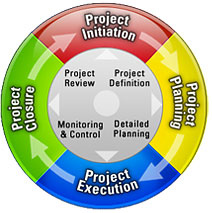AKA Who’s Driving This Freaking Thing?
(Subscribers may need to click through for the video. The transcript is below if you’re the reading type!)
I see articles every single day teaching job seekers how to use social media to get a job. On the other hand, I also see a lot of legal types doing their best to scare the pants off HR/recruiters who use social media to find candidates.
I\’m sure you\’ve heard that the headline sells the newspaper. Well, I was sucked into watching a recorded webinar the other day based solely on the title. How could I resist something called Blogging, Social Media, and the Workforce? :-)
Anyway, I realized my mistake pretty quickly. I spent 75% of the webinar listening to someone ramble about laws, phones, and email. Ugh. The last few minutes dealt with what the whole webinar should have been about–blogging and social media. Just a few gems I picked up from the webinar, if I might paraphrase:
- If you go to a blog and you decide not to hire because you find out that they are of a specific race or religion, that can be a problem. Whoa, you don\’t say! Wasn’t that already illegal?
- Don\’t let the people who make hiring decisions be the same ones who are using social networks like Facebook. Going to these sites can provide too much information. Huh? That doesn’t even make sense!
Those quotes make me a little queasy. Thankfully I have an antidote in this great comment by Mike Haberman.
When HR people tell me they are too busy in their jobs to use social media, I tell them it should be part of their jobs to use it. The tools are just too valuable to ignore.
I agree completely. Constant growth is a big part of this profession, and putting your head in the sand isn\’t exactly a strategy I\’m a fan of. Think about it. If coaches and other career professionals are telling job seekers to use social media to connect with companies, and you\’re hiding in the basement hoping it will blow over, where does that leave you in the long run? Yeah. Not good.
What are your thoughts?



 My view of SHRM apparently is different than the growing disdain among my fellow HR Professionals. As I was developing my knowledge of HR at the University of Michigan, I was given a great deal of support by SHRM either directly or indirectly. There in lies the key to why I feel that SHRM is still a relevant organization.
My view of SHRM apparently is different than the growing disdain among my fellow HR Professionals. As I was developing my knowledge of HR at the University of Michigan, I was given a great deal of support by SHRM either directly or indirectly. There in lies the key to why I feel that SHRM is still a relevant organization. 